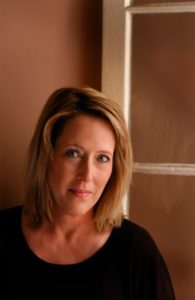In 1967, when I was on the cusp of my teens, my mother suffered what was then called a nervous breakdown. She was diagnosed as paranoid/schizophrenic. I believe that under today’s more sophisticated knowledge of mental illnesses, bipolar disorder would be more accurate.
Mom’s unraveling had been years in the making, with the seeds planted at her birth. Our home life didn’t lack for creature comforts, and there was fun but rarely calm. Avoiding my damaged mom, I often holed up in my room and wrote. Writing was my escape. Years would pass before I had the confidence to attempt fiction, but I relentlessly scribbled my musings, filling stacks of spiral-bound notebooks, preoccupied with boys, friends, and my teen idol crushes. I wrote little about my home life.
Over the decades following Mom’s breakdown, she pulled herself together, found a career, and built a new life. She was stylish, movie star beautiful, and could pour on the charm. Still, there was always something off about Mom. I was her youngest child, female, childless, unmarried until I was well into my 40s, and by default I became my mother’s keeper.
Mom was so proud of my writing career. She’d come to book signings and sit in the audience, beaming at me with her arms across her chest as if holding me close. People always commented on her beauty and style. Mom could be loving, generous, and fun but only my closest friends knew, and even they knew only a small part, of the damage she was capable of inflicting. I was preserving her pride, and mine too. Mom’s mental problems were a closely held secret in our family. It was bewildering and shameful. Mom’s brothers and sisters didn’t even know the whole story.
Write as if your parents are dead
New writers are often given that advice, meaning write your story your way and don’t care what your parents will think. I did care what my parents thought of my work but with my editor’s help, I didn’t shirk from digging into the depths of my characters.
My father passed in 2000. In 2013, my mother passed at nearly 88 years old. It’s strange to be orphaned as an adult, but that’s how it felt. I was untethered from the two people who knew me first, especially Mom. There was grief but also, for me, a guilty feeling of relief.
I kept writing, producing two more in my Nan Vining series and a standalone paranormal thriller. As distance from Mom increased, my curiosity about my past life with her sharpened.
Touched by fire
During the summer of 2016, a brush fire started not far from our rural home on the Central California Coast and steadily marched our direction. Preparing to evacuate, I moved irreplaceable items to safety, asking, “What’s important? What matters most?”
That unsettling era in my life had begun the prior year when the ever-changing publishing landscape had yet again knocked me to my knees. A personnel shakeup at my publisher hit home and left me feeling adrift.
The blaze was stopped and our house was safe. I completed my work in progress. As any Career Author knows, I should have immediately started work on my next book. But I didn’t. Normally, I would have barreled through personal and professional upsets. But this time, I’d lost the stomach for it. Instead, I took a break and evaluated where I was in my career and life. How many books do I have left to write? What matters most?
It became clear that there was one book I really wanted to write. My book. My life with Mom.
Full exposure or not?
I had published twelve crime novels but hadn’t a clue how to write My Book. I studied memoirs and autobiographical fiction and was particularly inspired by the works of Jeannette Walls, Mary Karr, and Pat Conroy.
Memoirs have fictional elements. Characters are combined. Situations are changed. Time is compressed. Even memory is fallible. Still, the author purports that this is what happened. Memoirists advise not to shirk from the truth. Did I really want to raise my skirt, drop the veil, and put it all out there? Did I have the guts? My actual guts twisted and churned.
Further, even though I’d written page-turners I couldn’t figure out how to craft my real non-fiction life with Mom into a structured story with a satisfying climax.
I realized Mom’s story—its truths and lies—might actually be best told as fiction.
Fiction would lend perspective that real life didn’t have. Also, being in my wheelhouse, it would allow me to magnify and dramatize the story, which in real life had often proceeded at the pace of a funeral dirge.
The great “What If?”
That’s where fiction starts. Truth might be stranger but fiction can pack a bigger wallop. That summer of 1967, a seminal event presaged Mom’s total breakdown. In the throes of psychosis, my mom had hatched a devious plan involving me. This plan would have put me in jeopardy, but Mom ended up being prevented from carrying it out. Now, freed by the power of fiction, I asked myself: What if Mom hadn’t been stopped? What if she’d gotten away with it? My path then became clear: I began writing my new novel.
 Dianne Emley is a Los Angeles Times bestselling author who’s received critical acclaim for her Detective Nan Vining mysteries (most recently, Lying Blind), Iris Thorne mysteries, and a paranormal thriller, The Night Visitor. Her books have been translated into six languages. An L.A. native, she lives in the Central California wine country with her husband.
Dianne Emley is a Los Angeles Times bestselling author who’s received critical acclaim for her Detective Nan Vining mysteries (most recently, Lying Blind), Iris Thorne mysteries, and a paranormal thriller, The Night Visitor. Her books have been translated into six languages. An L.A. native, she lives in the Central California wine country with her husband.
www.facebook.com/DianneEmleyAuthor





